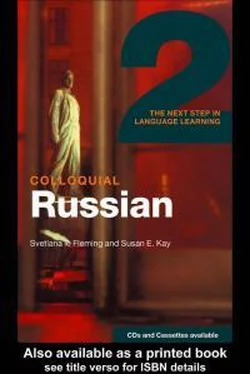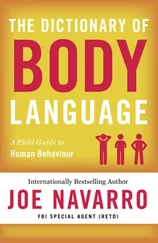Svetlana Flemming - Colloquial Russian - The Next Step in Language Learning
Здесь есть возможность читать онлайн «Svetlana Flemming - Colloquial Russian - The Next Step in Language Learning» весь текст электронной книги совершенно бесплатно (целиком полную версию без сокращений). В некоторых случаях можно слушать аудио, скачать через торрент в формате fb2 и присутствует краткое содержание. Год выпуска: 2003, Жанр: Языкознание, на английском языке. Описание произведения, (предисловие) а так же отзывы посетителей доступны на портале библиотеки ЛибКат.
- Название:Colloquial Russian: The Next Step in Language Learning
- Автор:
- Жанр:
- Год:2003
- ISBN:нет данных
- Рейтинг книги:5 / 5. Голосов: 1
-
Избранное:Добавить в избранное
- Отзывы:
-
Ваша оценка:
Colloquial Russian: The Next Step in Language Learning: краткое содержание, описание и аннотация
Предлагаем к чтению аннотацию, описание, краткое содержание или предисловие (зависит от того, что написал сам автор книги «Colloquial Russian: The Next Step in Language Learning»). Если вы не нашли необходимую информацию о книге — напишите в комментариях, мы постараемся отыскать её.
*Colloquial Russian 2* is designed to help those involved in self-study. Structured to give you the opportunity to listen to and read lots of modern, everyday Russian, it has also been developed to work systematically on reinforcing and extending your grasp of Russian grammar and vocabulary.
Key features of Colloquial Russian 2 include:
• revision material to help consolidate and build up your basics;
• a wide range of authentic contemporary documents;
• lots of spoken and written exercises in each unit;
• highlighted key structures and phrases, a grammar reference and detailed answer keys;
Audio material to accompany the course is available to download free in MP3 format from
Recorded by native speakers, the audio material features the dialogues and texts from the book and will help develop your listening and pronunciation skills.












